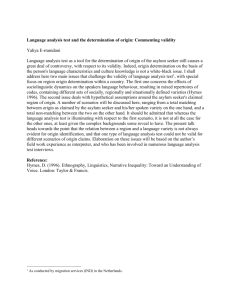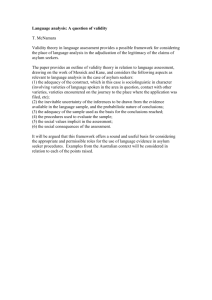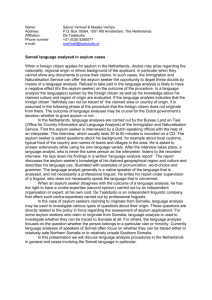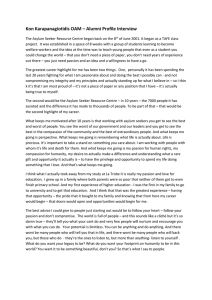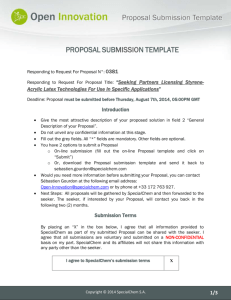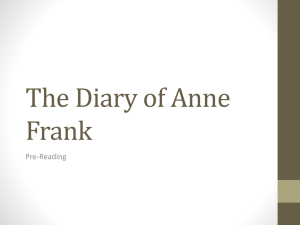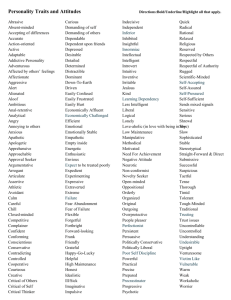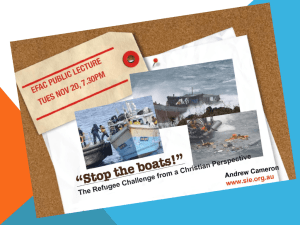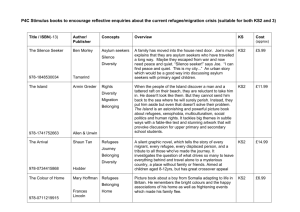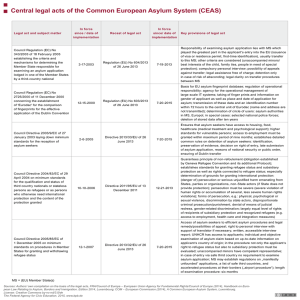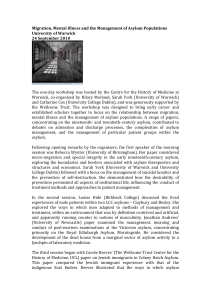Conference Abstract Writing Guidelines - CiCea
advertisement
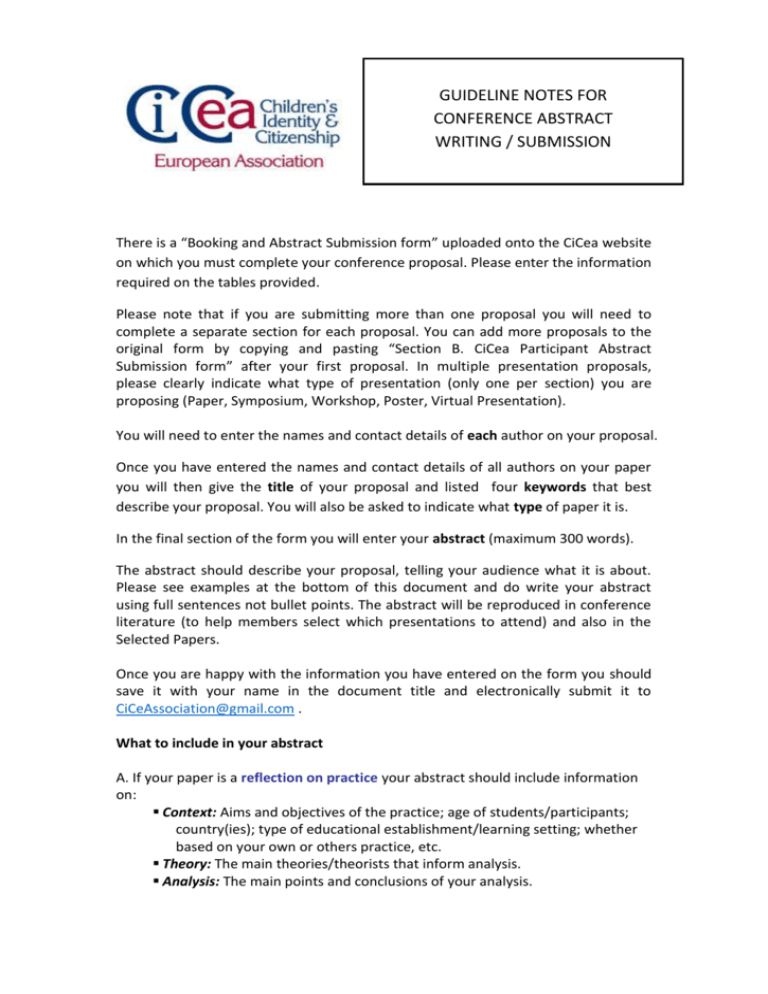
GUIDELINE NOTES FOR CONFERENCE ABSTRACT WRITING / SUBMISSION There is a “Booking and Abstract Submission form” uploaded onto the CiCea website on which you must complete your conference proposal. Please enter the information required on the tables provided. Please note that if you are submitting more than one proposal you will need to complete a separate section for each proposal. You can add more proposals to the original form by copying and pasting “Section B. CiCea Participant Abstract Submission form” after your first proposal. In multiple presentation proposals, please clearly indicate what type of presentation (only one per section) you are proposing (Paper, Symposium, Workshop, Poster, Virtual Presentation). You will need to enter the names and contact details of each author on your proposal. Once you have entered the names and contact details of all authors on your paper you will then give the title of your proposal and listed four keywords that best describe your proposal. You will also be asked to indicate what type of paper it is. In the final section of the form you will enter your abstract (maximum 300 words). The abstract should describe your proposal, telling your audience what it is about. Please see examples at the bottom of this document and do write your abstract using full sentences not bullet points. The abstract will be reproduced in conference literature (to help members select which presentations to attend) and also in the Selected Papers. Once you are happy with the information you have entered on the form you should save it with your name in the document title and electronically submit it to CiCeAssociation@gmail.com . What to include in your abstract A. If your paper is a reflection on practice your abstract should include information on: Context: Aims and objectives of the practice; age of students/participants; country(ies); type of educational establishment/learning setting; whether based on your own or others practice, etc. Theory: The main theories/theorists that inform analysis. Analysis: The main points and conclusions of your analysis. B. If your paper is an analysis of your own empirical data your abstract should include information on: Context: Clear statement of the problem that you are addressing, the characteristics that you are trying to discover or the proofs that you are trying to establish. These should then lead to declarations of project aims and objectives. Theory & Methodology: The basis of the technique that you are using or the procedure that you have adopted in your study; state and justify any assumptions. The main theories that you draw on. Results & Conclusions: Show illustrative examples of the main results of the work and a conclusion section, listing the main findings of your investigation. C. If your paper is a theoretical contribution not based on your own empirical data your abstract should include information on: Context: Note factors that have prompted discussion. Theory & Methodology: Summarise the main theoretical perspectives that inform the proposal. Results & Conclusions: Outline main conclusions and implications. Examples of abstracts from previous CiCea/CiCe Conferences: An example of an abstract for a paper that is based on empirical data: The informal curriculum on gender identity M. Koutselini and S. Agathangelou Department of Education, University of Cyprus (Cyprus) This study investigated gender profiles in 588 fifth grade elementary students and 1158 secondary grade students in Cyprus and compared them with gender representations in the media. The students completed a questionnaire based on the results of the qualitative analysis of eight randomly selected Cypriot television series. The results indicate that there is coherence between gender stereotypes in students’ perceptions and those promoted by the television series. Women, in contrast to men, are presented restricted to their private life with limited action in their public life. This article argues that citizenship education must promote research and reflection on contextualised gender studies taking into account the different expectations and reflections of the ‘depoliticised’ sections of the public and the important role the informal curriculum has on the development of students’ identities. Key words: informal curriculum, gender mainstreaming, mass media An example of an abstract for a paper that is a reflection on practice: Approaches to the education of asylum seeker children in Slovakia and the UK: a cross-cultural comparison Rob Foster, Edge Hill University (UK) & Iveta Kovalcikova, Presov University (Slovakia) This paper explores approaches to the education of asylum seekers in an established member of the European Union, the U.K., and a new member, Slovakia. The investigation looks first at policy frameworks in the two countries - official government documents, national and local guidance. The second section takes case study examples from the two contexts and explores the issues and challenges of educating asylum seeker children via the perspectives and experiences of children, parents and teachers. The findings reveal significant difficulties at both policy and local provision levels. However, the school case studies provide grounds for cautious optimism that the inclusion of asylum seeker pupils into the life of the school can be a positive experience for all concerned. Key words: asylum seeker children, approaches to education, cross-cultural comparison
